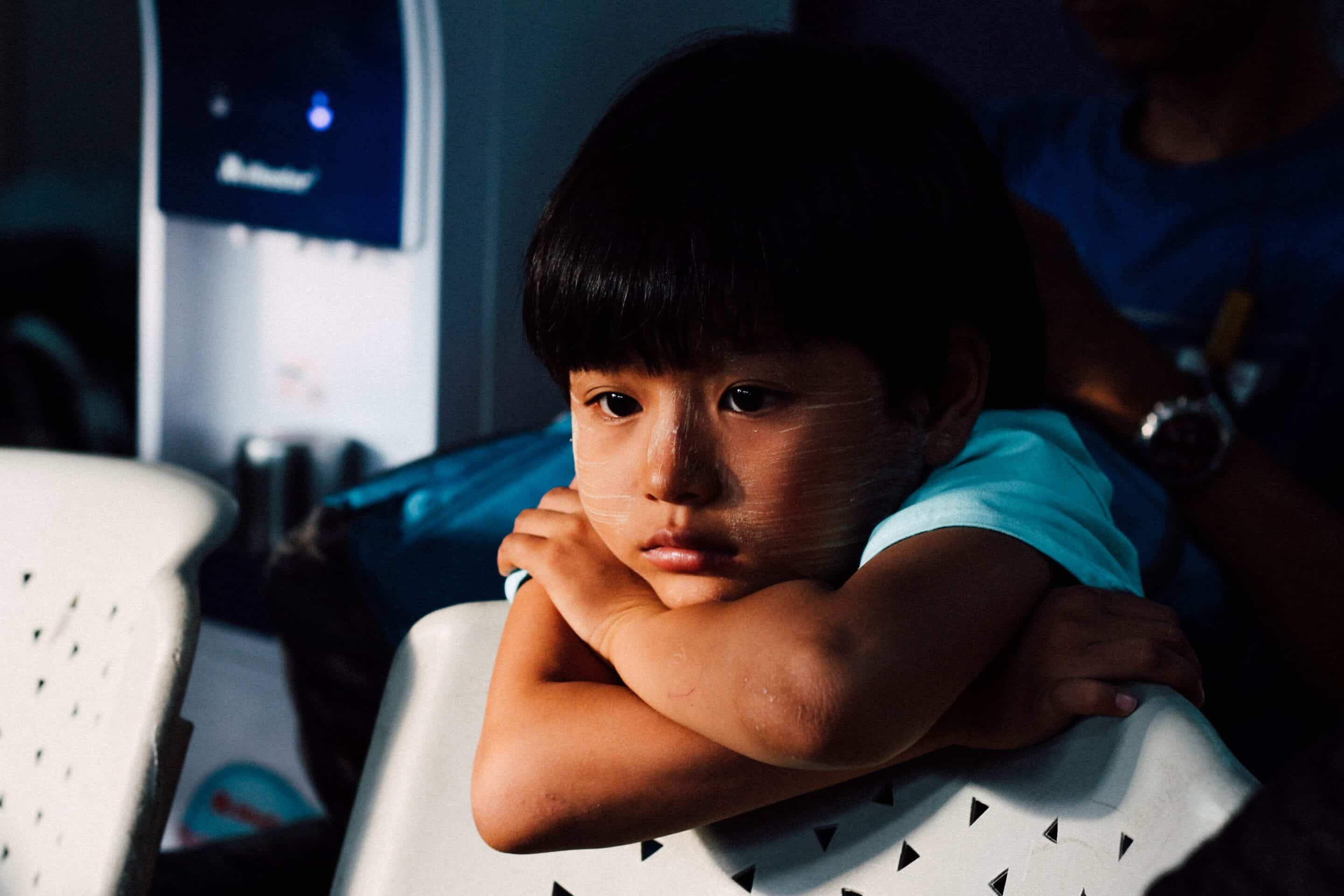47% of surveyed kids under age 18 believe their life will be harder than it will be for other people. Photo by Chinh Le Duc on Unsplash.
Evermore’s next few stories will have a “Back to School” theme focusing on both younger children and college-aged students. We are giving focus to siblings who have suffered the death of a brother or sister. Returning to school without their siblings can be painful reminder. Being with caring adults and peers who share their experience is extremely important. Bereaved parents are often so devastated by the death of their child, they can’t be there for their surviving children in the way they want to and need to be.
For centuries, children have grieved the death of a relative or friend. But, even just a couple of decades ago, there wasn’t really a field called “child bereavement” or a central organization to support the groups and individuals across the country who do the hard work to help kids in mourning.
To fill in the gaps, the National Alliance for Grieving Children formed nearly 25 years ago to create a network of people who provide services for kids who need them. And, today, the alliance’s membership has grown to 1,100. They include representatives from bereavement centers and hospices, along with social workers, child life specialists, school employees and others.
Vicki Jay, the alliance’s chief executive officer, said the lag to launch a bigger effort to support grieving children boils down, in part, to people’s discomfort with the topic.
“There are two natural things in life — birth and death,” Jay said. “We do everything in the world we can to plan for, anticipate and celebrate birth. And we, as a society, are not so eager to talk about the second topic. As a society, we haven’t done a lot of good work through the years of recognizing the importance of supporting people through that process.”

- Vicki Jay, Chief Executive Officer.
What’s more, grieving children make adults uncomfortable. “We want to think kids are resilient,” she said. “They’ll be OK, and they’ll bounce back.”
In reality, she said, adults just don’t know what to do about kids who have experienced a death. “It’s easier to think that kids will be OK than trying to figure out how to help them,” Jay said. “Putting kids and grief in the same sentence makes a lot of people uncomfortable.”
But that’s what Jay and others at the alliance do on a daily basis. And their work has helped to uncover statistics that show that bereaved kids need help. Along with local grief support centers and the New York Life Foundation, the alliance conducted a national poll of 531 grieving children and teenagers, ages 18 and under, who were mourning the death of a parent or sibling.
The results, according to the alliance’s website, uncovered some sad realities:
- 86% of respondents said that they wish they had more time with their loved one, with 69% saying that they wish they could talk to their loved one, just one more time.
- 75% say the pervading emotion they currently feel is sadness, with feeling angry, alone, overwhelmed and worried being top other emotions.
- 73% said that they think about their loved one every day.
- 47% believe their life will be harder than it will be for other people.
- 46% cannot believe it is true.
Children also report trouble sleeping and concentrating on school work and that they’ve acted in ways that might not be healthy, according to the survey.
“When there is a death, I, as an adult, have a need to do something,” Jay said. “I call somebody. I cry. I pray. I research. I reach out. I make a casserole. I do something. And kids have that same need. Their tools are just different. We need to give them something to do that allows them to take that inside expression that they have and express it outwardly. … Our goal with kids is to give them the tools to get that inside stuff out.”
To help grieving kids, the alliance provides educational opportunities for the professionals who work with them and also connects children with services around the country. And, each November, it holds a National Childhood Bereavement Awareness Month to raise awareness about the needs of bereaved children.

Megan Lopez, National Program Director.
Jay, along with Megan Lopez, the alliance’s national program director, shared some tips for adults who are caring for grieving kids to help them understand their emotions. Here’s what they suggest.
#1 Talk about hard things
Adults often want to protect a child from hurtful or difficult-to-understand situations. But, when they do that, Jay said, they miss out on opportunities to have important talks about life and death. “We have multiple opportunities to help kids understand life and death and grief, and we need to capitalize on those,” she said. When those conversations take place, she said, you’re empowering them with information and knowledge.
#2 Expect unexpected reactions
Sobbing, deep sadness, exhaustion, changes in appetite and trouble sleeping are considered common reactions to grief. But, for kids, sometimes they just want to play or go back to school. “It doesn’t mean they’re not grieving,” Lopez said. “It means they’re a kid.”
#3 Look for change
Kids react to grief in any number of ways. “It looks like change for them,” Lopez said. “Maybe they were a very outgoing child before and now they’ve become more introverted. Maybe they were struggling with school and now they are really overachieving.”
What you’re looking for, she said, are changes to their typical behavior at home and school.
#4 Help them open up
It can be as simple as coloring a picture or playing with play dough together, Jay said. At night, she suggests, ask them what the best and worst thing is about their life. Find out what they’re excited and worried about.
Expect questions to come up months or years after the death as kids navigate through different developmental stages. “Give them multiple opportunities and modalities to help them express what’s inside and ask questions,” Jay said.
#5 Give them a safe space
Parents, of course, will want to ensure that children know they can go to them with questions. But adults also are grieving a loss. Lopez recommends providing other sources, who might be more removed from the family’s pain, where children can talk about their feelings. It might be a support group or with trusted friends.
“It’s about meeting the child where they are,” Lopez said. “Not giving them more information than they are ready to process, but being willing to keep having conversations. It’s not one and done.”

